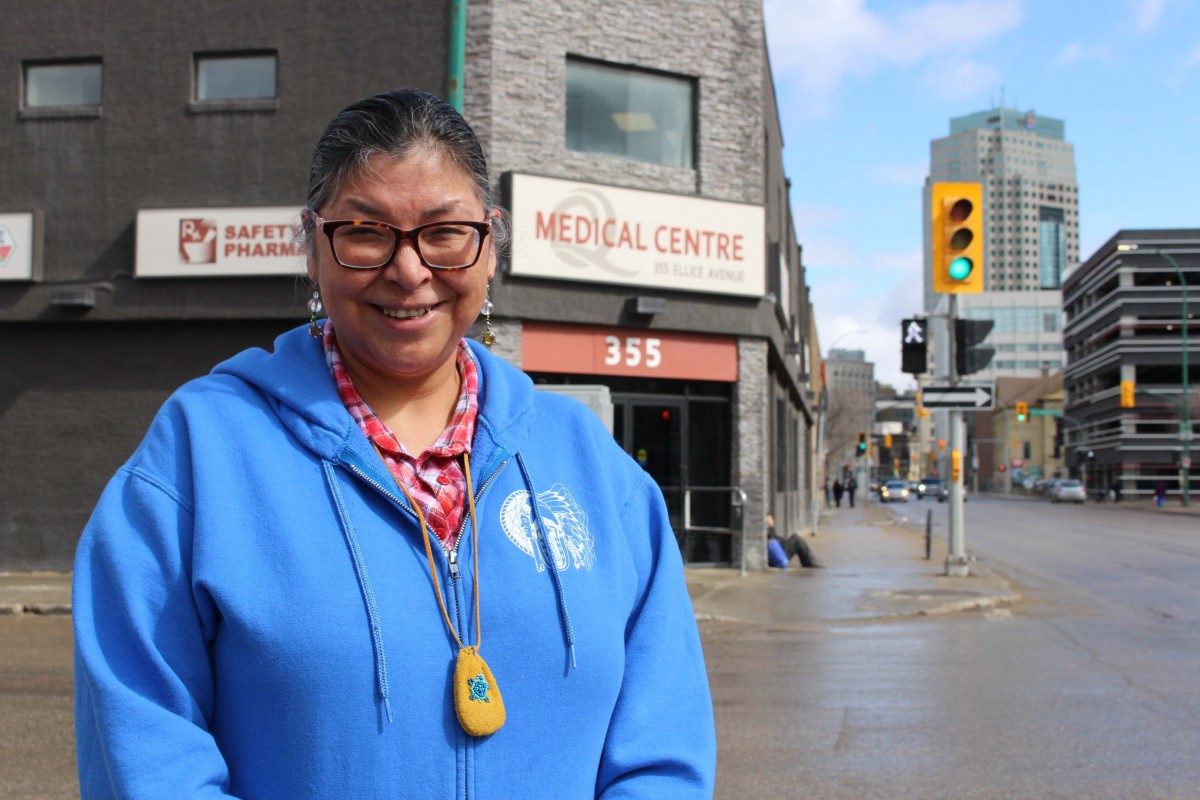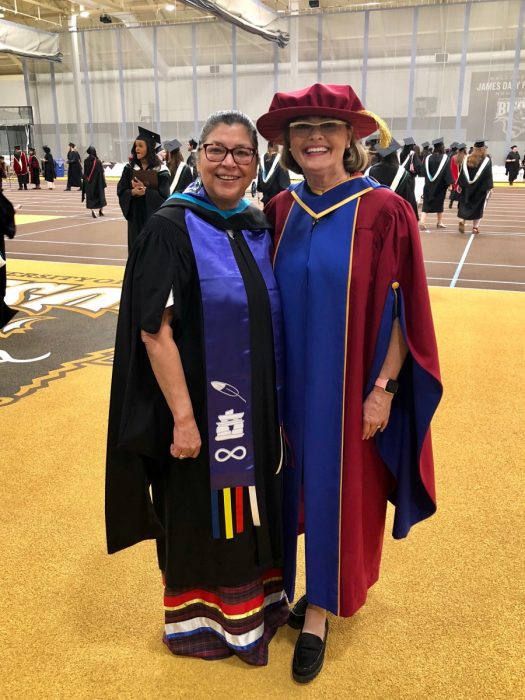
Crystal Cook, mental wellness clinician with Natawiwewak Medical Clinic and graduate of the College of Nursing's master's program, says being connected to her culture as a role model is essential to her career.
Indigenous Nursing grad a health-care role model
Early in her nursing career, Crystal Cook, a mental wellness clinician with Natawiwewak Medical Clinic, knew she wanted to work directly with people in her culture and become a role model for those thinking of pursuing health care as a profession.
Cook, who is originally from Misipawistik Cree Nation, near Grand Rapids, Man., started working toward her bachelor of nursing degree in 2001 in Norway House, Man. through a U of M partnership with the community. She completed her degree at the College of Nursing, Rady Faculty of Health Sciences and then worked in acute care at Health Sciences Centre and at Garden Hill Nursing Station in northeastern Manitoba.
“I didn’t see any First Nations people in leadership, taking control of the units or running the facilities,” she said. “I knew right away I wanted to continue on to my master’s degree with an eye toward eventually being part of health leadership in the north. I want to be a First Nations person in leadership so other people could see that they could achieve such a thing.”

Crystal Cook at her October 2018 convocation with associate professor Donna Martin, who Cook calls one of her mentors.
She soon noticed it wasn’t just leadership, but an overall lack of Indigenous people working in health careers in the province, including First Nations communities. While working as a dialysis nurse in Garden Hill First Nation, she was the only Indigenous caregiver working with an almost exclusively Indigenous client base.
“When I was there, there were six beds in the facility to give dialysis, and each of them was occupied by a First Nations individual,” she said. “Every one of those patients wanted me to be their nurse because they were more comfortable with me. It was really disheartening to have to say ‘no.’”
Cook received her bachelor’s degree in 2008. Three years later, she entered the master’s program as the only Indigenous student in her year, graduating in October 2018.
She said working toward her master of nursing degree was a challenge because she was a single mother of four at the time. But with her children now grown, she is able to work away from home on a regular basis, providing mental health care in multiple First Nations communities.
Cook has been a clinician at Natawiwewak Medical Clinic since it began operations in December 2017. The facility, which operates out of Winnipeg as part of the Quest Medical Centre, focuses on treatments for substance use, mental illness, anxiety and depression, and as support for individuals and families struggling with suicidal ideation and behaviours.
The facility serves four First Nations communities in northern Manitoba: Bunibonibee Cree Nation; Manto Sipi Cree Nation; God’s Lake First Nation and Chemawawin Cree Nation. Funding comes directly from Manitoba Keewatinowi Okimakanak, a non-profit, political advocacy organization that represents First Nations communities. The plan is to add more communities in the future, when additional funding is secured, she said.
While mental health wasn’t what she initially thought she’d specialize in, Cook said it is an essential part of health care when working in northern communities where suicide is all-too common.
“We provide services to people who are going through suicidal thoughts or self-harming, and we’re trying to teach them coping skills,” she said.
Cook noted that when working in these communities, she makes a point of meeting with Indigenous youth, including visiting high school career fairs, to discuss careers in health.
“I always go into the communities and talk to people,” she said. “I want to get more First Nations people into health care, servicing people at the beds and leading the units and facilities. That’s what we need.”






